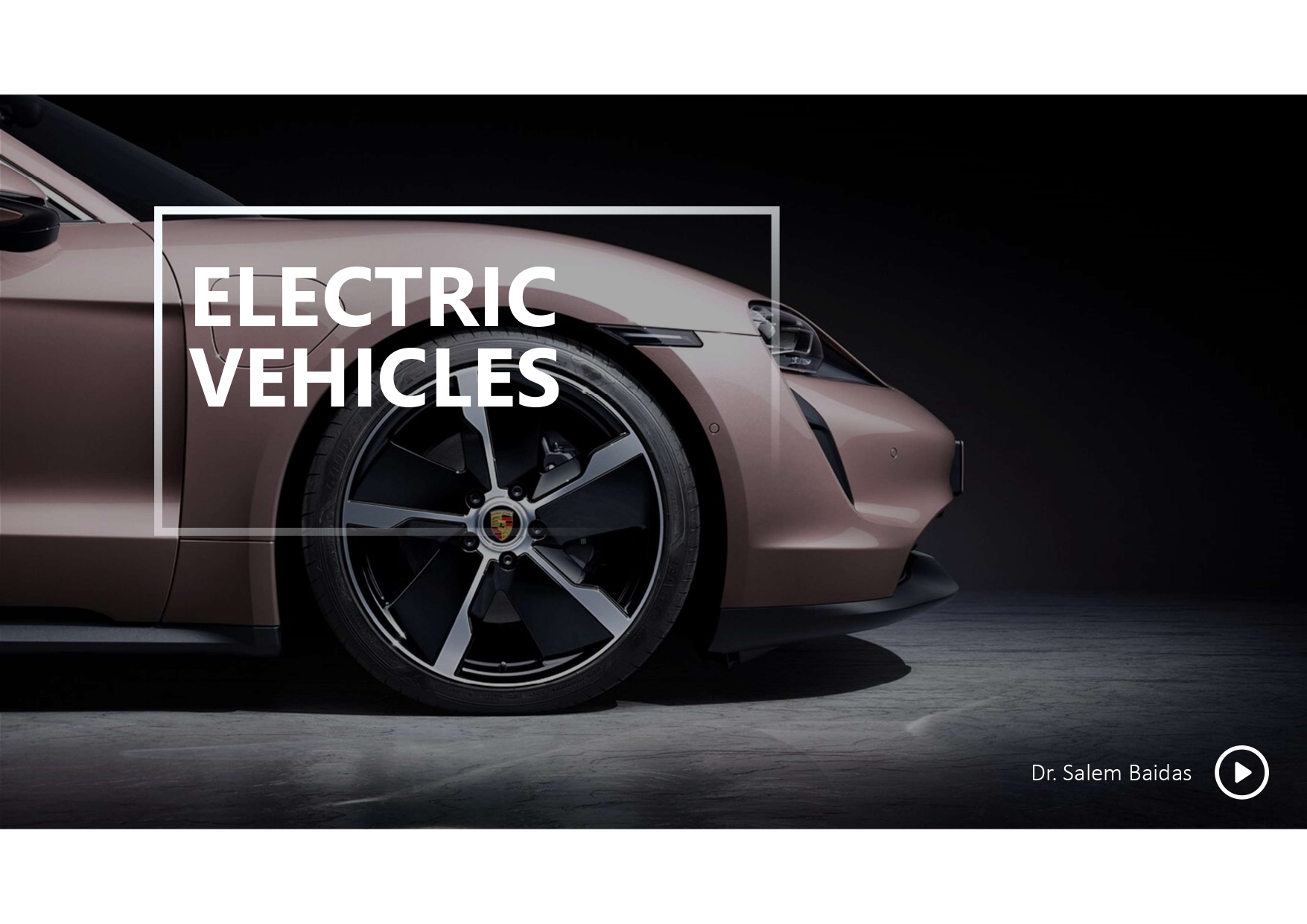ELECTRIC VEHICLES (EVs)
January 2024 – Electric Vehicles (EVs) use an electric motor powered by electricity from batteries. An EV uses a battery pack to power the motor and must regularly be plugged into a charging station or wall outlet to recharge. A key benefit of EVs over fossil fuel vehicles is that they have the potential to significantly reduce air pollution by having no exhaust emissions. Other benefits include cost saving on fuel, low maintenance, and the convenience of home charging. However, there are some challenges such as the high purchase price and a long charging time. The use of electric vehicles has grown as a result of increasing efforts to reduce the environmental impacts associated with fossil fuel use such as carbon emissions and climate change. In 2022, during the Conference of the Parties (COP27), the accelerating to zero coalition was established to promote the transition of global new vehicle sales to zero emissions by the year 2040.
In this slideshow, you will learn about the definition, benefits, challenges, UN policy, and global statistics of electric vehicles.























































































